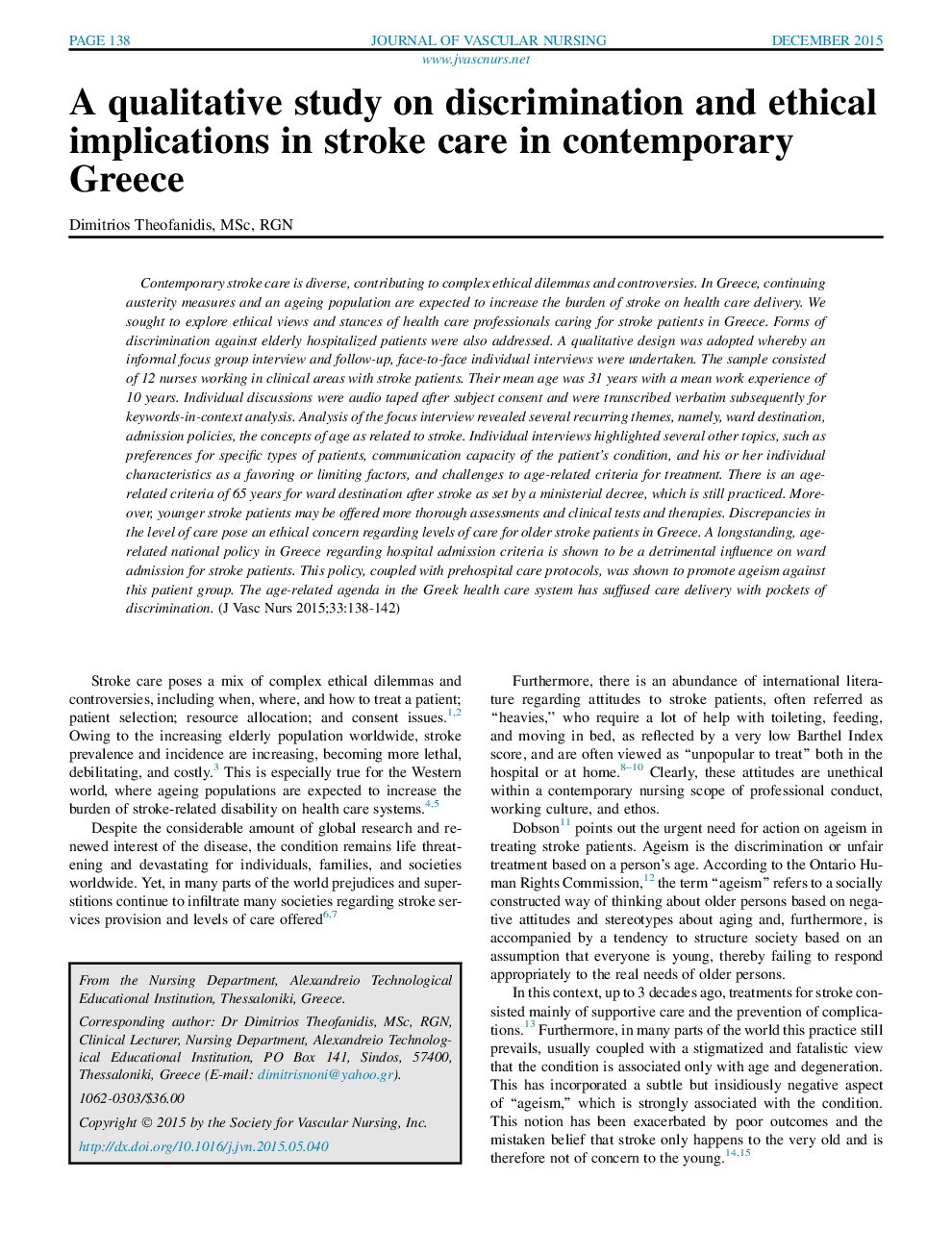| Article ID | Journal | Published Year | Pages | File Type |
|---|---|---|---|---|
| 2670249 | Journal of Vascular Nursing | 2015 | 5 Pages |
•Raises awareness of the risk of how an official governmental policy can inadvertently lead to discrimination.•Provides insights into the multiple ethical implications in stroke care provision.•Highlights that a cutoff age for stroke services may exacerbate attitudes of “ageism” and practices affecting patients afflicted with stroke.
Contemporary stroke care is diverse, contributing to complex ethical dilemmas and controversies. In Greece, continuing austerity measures and an ageing population are expected to increase the burden of stroke on health care delivery. We sought to explore ethical views and stances of health care professionals caring for stroke patients in Greece. Forms of discrimination against elderly hospitalized patients were also addressed. A qualitative design was adopted whereby an informal focus group interview and follow-up, face-to-face individual interviews were undertaken. The sample consisted of 12 nurses working in clinical areas with stroke patients. Their mean age was 31 years with a mean work experience of 10 years. Individual discussions were audio taped after subject consent and were transcribed verbatim subsequently for keywords-in-context analysis. Analysis of the focus interview revealed several recurring themes, namely, ward destination, admission policies, the concepts of age as related to stroke. Individual interviews highlighted several other topics, such as preferences for specific types of patients, communication capacity of the patient's condition, and his or her individual characteristics as a favoring or limiting factors, and challenges to age-related criteria for treatment. There is an age-related criteria of 65 years for ward destination after stroke as set by a ministerial decree, which is still practiced. Moreover, younger stroke patients may be offered more thorough assessments and clinical tests and therapies. Discrepancies in the level of care pose an ethical concern regarding levels of care for older stroke patients in Greece. A longstanding, age-related national policy in Greece regarding hospital admission criteria is shown to be a detrimental influence on ward admission for stroke patients. This policy, coupled with prehospital care protocols, was shown to promote ageism against this patient group. The age-related agenda in the Greek health care system has suffused care delivery with pockets of discrimination.
